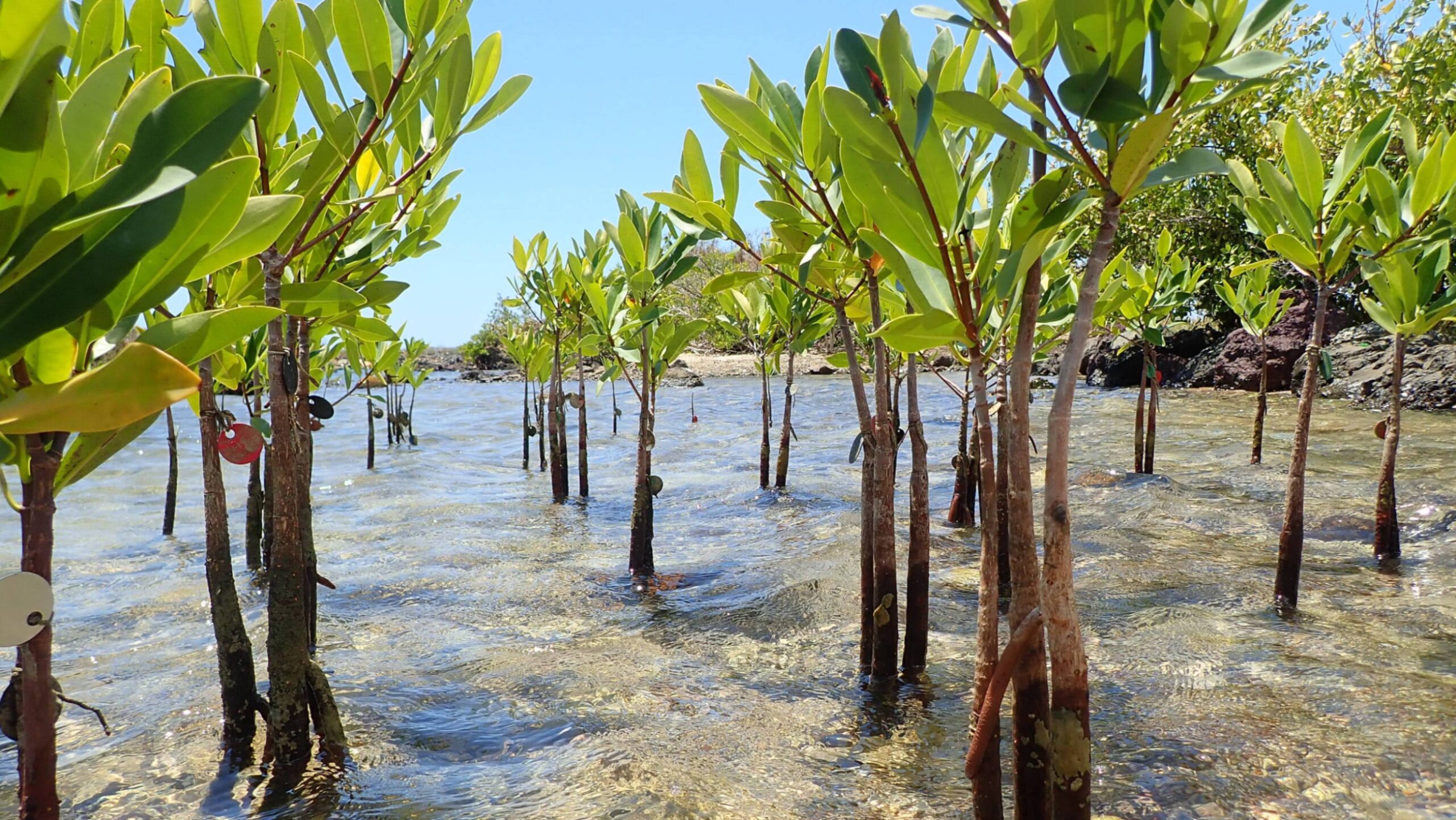The global transformations towards adaptive and resilient development
Extreme weather events from heat waves, floods, and forest fires have become an everyday reality of our lives. Enhanced global action on adaptation and resilience is an utmost priority.
Recognizing that progress towards adapting to climate consequences and enhancing resilience is crucially needed, the COP27 Presidency in November 2023 launched the Sharm-El-Sheikh Adaptation Agenda (SAA).
The agenda portrays a total of 30 global adaptation outcome targets by 2030 that are urgently needed to increase the Race to Resilience‘s goal of building the resilience of 4 billion people to accelerate transformation across five impact systems. These are: food and agriculture, water and nature, coastal and oceans, human settlements, and infrastructure, and including enabling solutions for planning and finance.
The SAA will serve as aspirational adaptation outcomes for global adaptation action towards 2030, and to inform state and non-Party adaptation agendas. The 30 global adaptation outcome targets will continue to be enhanced and refined based on scientific results.
The COP27 Presidency, through the collaboration with High-Level Champions, Marrakech Partnership and a number of specialized UN agencies, will track progress achieved in implementing the SAA. Our key driver is placing adaptation and resilience at the forefront of global climate action.
 ×
×
Global climate action towards 1.5°C is accelerating across the economy, from deforestation-free supply chains to electric vehicles from green steel to green hydrogen. Pledges on mitigation by businesses, investors, cities, regions, civil society and national governments demonstrate the power of collective ambition and innovation towards a net zero world. Yet emissions continue to rise and climate devastation continues to intensify. The momentum behind 1.5°C needs to translate urgently into implementation.
Solving for decarbonization is not enough; it is only part of the equation. Past emissions have already pushed our planet into the danger zone. We are approaching five disastrous climate tipping points with potential cascading effects. The IPCC AR 6 report is clear that climate impacts are increasing and that most of them are interconnected and often irreversible.
We need to simultaneously muster efforts behind adaptation and resilience implementation solutions as millions of people globally are already experiencing the economic, social and ecosystem impacts of climate change. In 2021 alone, extreme weather driven by climate change caused over USD 170 billion in damages.
Urgent action is needed now at an unprecedented pace and scale.
Global adaptation action and finance is growing – but not fast enough, not equally across geographies, and mostly comes from the public sector. For example, 39% of the average USD 29.5 billion in climate finance for Africa in 2019 and 2020 went towards adaptation. Yet just 3% of those funds came from the private sector.
To deliver climate action, whole-scale transformations are needed on two fronts:
- To get to net zero emissions as soon as possible to prevent incremental
damage; - To significantly increase actions and investments to adapt now to the current and unavoidable impacts of climate change, putting people and nature first in pursuit of a resilient world where we don’t just survive climate shocks and stresses but thrive in spite of them.
Adaptation refers to the process for human and natural ecosystems to adjust to actual or expected climate change and its effects in order to moderate harm or exploit potential benefits. Adaptation is needed to ensure the safety of populations and the security of assets.
Resilience is the capacity of social, economic and environmental systems to cope with a hazardous event, trend or disturbance, responding or reorganising in ways that maintain their essential function, identity and structure while also maintaining the capacity for adaptation, learning and transformation.
Recognising that adaptation implementation and resilience is lagging compared with mitigation, a consolidated action agenda across stakeholders is required.
Many different actors across the world are working to deliver adaptation actions and enhance resilience across several thematic priorities, but without common and tangible targets.
Resilience is needed globally but starts with local adaptation solutions that depend on the specific context of geographies and communities, and takes into account the needs and preferences of the most vulnerable people. A set of intermediate milestones are therefore needed to help give direction to these transformative solutions for tangible and attainable outcomes for adaptation of both natural and human systems.
In response to this challenge, the COP27 Presidency launched the SAA in partnership with the High-Level Champions and a number of UN specialized agencies.
 ×
×
Accelerating adaptation action and building a resilient world at pace and scale requires alignment, collaboration and common vision. Incremental changes to gradually adapt to the different climate hazards and recover essential functions within society is no longer sufficient; societies need to rapidly accelerate action creating what the IPCC calls transformative solutions and building climate resilient development through a more holistic approach.
The individual efforts of regions, cities, businesses, investors and civil society taking climate action is critical – but racing in their tracks alone will only get us part of the way. We need coordinated action from different players across economic, natural and social systems to achieve a genuine step-change in progress towards adaptation and resilience.
Adaptation and resilience transformative solutions are advanced when multiple sectors and actors move in synchronization to deploy ideas and manage climate risks, mutually reinforce sectoral transformations, and enhance innovation on how finance, governance, policy and access to technology and information are delivered. When many of these groups of actors across several sectors see each other working towards a common milestone, their actions and progress mutually reinforce to overcome obstacles, break silos, enhance synergies and create catalytic action.
Defining Impact Systems
The Marrakech Partnership defined five key impact systems to structure Resilience initiatives globally as part of the Climate Action Pathways; the Sharm-El-Sheikh Adaptation Agenda defines attainable outcome targets across the impact systems and cross-cutting enablers.
Building on the Global Commission on Adaptation Flagship Report and the UN Sustainable Development Goals and bringing together global aspirations, these adaptation outcomes present a guiding star for the long-term ambitions of a resilient world.
Each impact system under the SAA counts with tangible and trackable measures of our progress to accelerate adaptation towards resilience and of the work being done within the non-Party Stakeholder (NPS) community. To that end, specific targets have been identified based on existing targets based on science with an emphasis on delivering action by 2030. These targets consolidate the work of existing and new adaptation and resilience initiatives. Collectively, they articulate what key actors must do, and by when, to deliver systems change. This creates a shared vision for how all the different players in a system can contribute to the whole.
The SAA is informed by an analysis of the hazards that vulnerable communities face and actions needed to build resilience against those hazards. The intensity of these hazards varies globally but they represent an existential threat to billions of people.
The major threats can be summarized as:
1. Ocean warming and acidification;
2. Coastal flooding;
3. River flooding;
4. Extreme wet weather events (e.g. storms, cyclones);
5. Droughts;
6. Extreme heats (e.g. wildfires);
7. Soil erosion.
Climate risks are a combination of hazards, together with the vulnerability and exposure of communities and ecosystems. Each adaptation outcome addresses at least one of the hazards and seeks to reduce the vulnerability and exposure to that hazard to improve the resilience of communities and ecosystems.
Related News
Progressing global adaptation and resilience action: Contribute to the Sharm El-Shiekh Adaptation Agenda annual implementation report
The Climate Champions invite you to participate in the Sharm Adaptation Agenda Public Survey. Your insights will be instrumental in assessing the progress we’ve made across key areas.
READ MORESharm El Sheikh Adaptation Agenda to take centre stage at Bonn 2023
Midway between COP27 and COP28, the global climate community gears up for a landmark event that promises to inject strong momentum into enhancing global action on adaptation and resilience as an utmost priority.
READ MOREThe Sharm el Sheikh Adaptation Agenda: Catalysing collaborative action towards a resilient future
Resilience experts and members of Race to Resilience’s MAG advisory group, Anand Patwardhan, Emilie Beauchamp, Ana Maria Lobo-Guerrero, and Paulina Aldunce, underline the transformative impact of the Sharm El Sheikh Adaptation Agenda in driving collaboration and fast-tracking action to bridge the adaptation gap and support the world’s most vulnerable communities.
READ MORE“We can. We will”: Climate Week NYC
The major annual event hosted by the Climate Group and New York City, in conjunction with the UN General Assembly (UNGA) opens this Sunday 17 September, with some 400 sessions taking place across the city.
READ MORE
